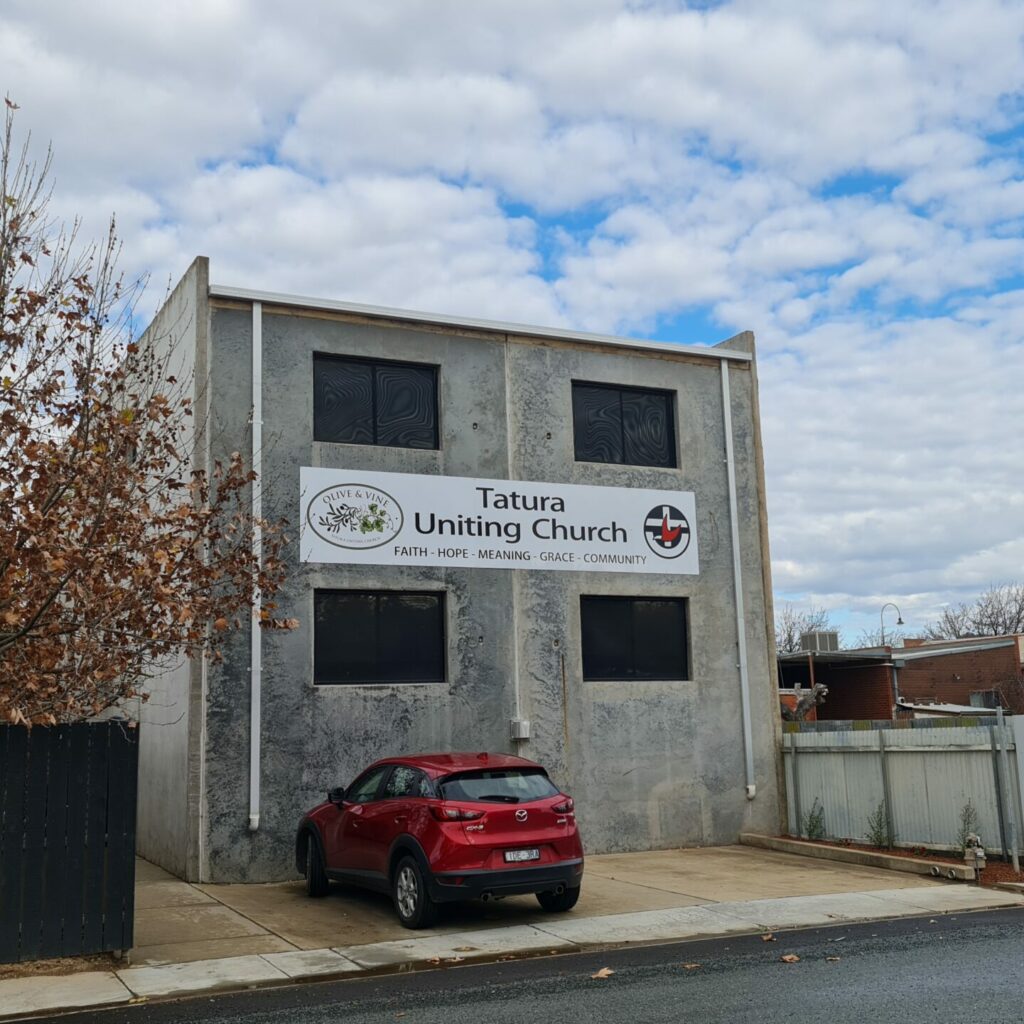In the large and growing regional town of Tatura in North East Victoria, the congregation of Tatura Uniting Church radically reshaped its life when it decided to sell its 60-year-old building complex and move into an unfamiliar space.
With a church building no longer ‘fit for purpose’ and determined to steward limited resources wisely, it swapped its 1959 brick building for a café and gallery space that it has opened to the community. Now, it is a visible presence in the heart of town – and it’s growing.
Rev. Brian Spencer, Minister in the Waranga Uniting Churches cluster to which Tatura belongs, says the courageous and innovative move has inspired huge excitement in the congregation and beyond.
“As we shared the vision with the community and the wider church, the congregation sensed the support and excitement in the response of others. We knew this was something important.”
Tatura is one of three main urban centres in Greater Shepparton with a growing population and unique needs and opportunities. Connecting with the community became a driving factor for change.
“We wanted to reach out to our community and to the many new residents making their home in Tatura,” says Rev. Spencer. “For many of these new residents relocating exposes deeper spiritual needs. They come with hopes and dreams, but need to find belonging and acceptance in a new community.”
“Our vision was to create a prominent, warm, inviting place with space for worship, fellowship and to explore new opportunities for outreach and mission. We want to be a sustainable congregation where people in our growing community can find faith, hope, meaning, grace and belonging.”
The congregation originally hoped it would realise this vision at the existing church site, which was well located but showing its age and needing significant maintenance.
For nearly two and a half frustrating years it unsuccessfully sought approval to redevelop. At the same time, it had been going through a process of “mission-motivated development”, looking at the current and future needs of the congregation and local communities.
In the same year the congregation realised it would need to spend the bulk of its finances to bring the existing 1960s building up to code, it discovered an established café and gallery for sale in the heart of the Tatura township.
A lengthy and transparent process of discernment followed. No pressure was applied towards a decision. The congregation was encouraged to pray and reflect on the options and possibilities.
“It was emphasised that this was the congregation’s decision to make. We avoided suggesting that the proposed sale of the old church and purchasing the café was ‘God’s will’. There were many ways of pursuing our vision and mission as a congregation, and the concerns or contrary views of some should not be portrayed as somehow them lacking faith or resisting the Spirit.”
“In the end it was a clear consensus that this was indeed the way we wanted to go and we did have a clear sense of it being God’s leading. We did not lose any members through the sale of the old church and purchase of the café.”
The congregation was intentional in marking the end of an era and the closure of the old buildings with special services where it gave thanks for the past and for new beginnings.
It has since given the café a new life as a hybrid worship and hospitality space, and a new name – Olive & Vine. Despite COVID-19 delaying plans it is already well used by the church and community, hosting fellowship after worship, Pancake Day (which was open to the public), private functions and community events organised by Rotary Australia and the Country Women’s Association. There are more opportunities on the horizon.
Reflecting on what innovation looks like, Rev. Spencer says their experience reveals how a change in context and structure encourages people to think and act differently.

“The move to Olive & Vine takes what is familiar to the existing community and puts it in a strange context. In doing so the familiar becomes strange and causes people to think differently about faith and mission. The context creates opportunities.”
“In the same way for the broader community, the familiar context of a café makes the strange familiar. The strange rituals of liturgy and church seem different in this new context; entering the space seems less forbidding. There is a greater sense of control. Knowing where to sit and how to behave empowers people.”
“Somehow the new premises have allowed past members who were alienated from the church to heal, to be curious, to discover that the church they left or drifted away from is not the church of today.”
Looking to the future, the congregation is now discussing options for developing the café as a social enterprise, providing work experience and training for refugees in partnership with Uniting Settlement and Employment Services in Shepparton. It has secured funding for a pilot project that will offer work experience to refugees and job seekers and opportunities for them to tell their story, building greater understanding and awareness in the community.
Rev. Spencer says the congregation’s story resists “the prevailing narrative that people are too attached to their buildings and not prepared to move or change for the sake of their mission and faith.”
“With a clear vision of what we wanted and a readiness for change, the congregation was in a good space to dream a new future and to enter into the uncertainty of such a new venture.”
“We were both excited and scared but felt confident that we were responding to God’s leading and guidance.”
Bethany Broadstock
This piece originally appeared on the Assembly website. You can view the original post here.












